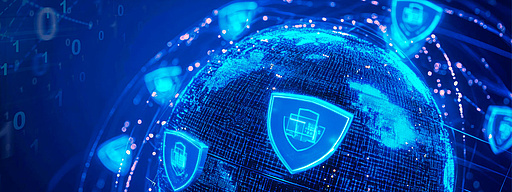18. June 2025, IT Security, System Administration
AI in business: Beyond the chit-chat
Navigating the Endpoint Complexity and Security Maze: Why Comprehensive UEM Is More Essential Than Ever
The Digital Workplace of the Future: DEX as a Strategic Game-Changer for Organizations
Less is more: Release 2025 R1 expands Linux, network scanning and security features and retires legacy functions
Rethinking IT Transformation – with DEX as a Key to Success
Cyber resilience: the most important trends for secure endpoint management
Proactive IT: How Forward-Looking IT-Strategies Are Transforming the Digital Employee Experience
Sustainable IT: How Digital Employee Experience makes the social factor in ESG measurable
The ingenious principle of Linux software management
Entries 1 to 9 of 135









